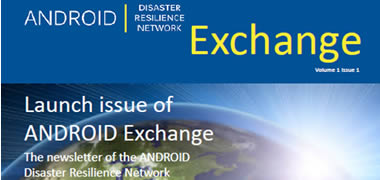-
Courses

Courses
Choosing a course is one of the most important decisions you'll ever make! View our courses and see what our students and lecturers have to say about the courses you are interested in at the links below.
-
University Life

University Life
Each year more than 4,000 choose University of Galway as their University of choice. Find out what life at University of Galway is all about here.
-
About University of Galway

About University of Galway
Since 1845, University of Galway has been sharing the highest quality teaching and research with Ireland and the world. Find out what makes our University so special – from our distinguished history to the latest news and campus developments.
-
Colleges & Schools

Colleges & Schools
University of Galway has earned international recognition as a research-led university with a commitment to top quality teaching across a range of key areas of expertise.
-
Research & Innovation

Research & Innovation
University of Galway’s vibrant research community take on some of the most pressing challenges of our times.
-
Business & Industry

Guiding Breakthrough Research at University of Galway
We explore and facilitate commercial opportunities for the research community at University of Galway, as well as facilitating industry partnership.
-
Alumni & Friends

Alumni & Friends
There are 128,000 University of Galway alumni worldwide. Stay connected to your alumni community! Join our social networks and update your details online.
-
Community Engagement

Community Engagement
At University of Galway, we believe that the best learning takes place when you apply what you learn in a real world context. That's why many of our courses include work placements or community projects.
August 2012 Staying One Step Ahead of Disaster
Staying One Step Ahead of Disaster
Wednesday, 22 August 2012

Ireland is now part of an academic network which hopes to improve disaster preparedness in cities worldwide. NUI Galway’s experts have joined with 67 other universities in efforts to increase society’s resilience to natural and man-made disasters.
The project, called ANDROID (Academic Network for Disaster Resilience to Optimise Educational Development), aims to promote co-operation and innovation among European higher education institutions to increase society’s resilience to disasters of human and natural origin – such as earthquakes or the damage caused by ongoing wars.
ANDROID, supported by an EU grant worth €800,000, will run for three years and is led by University of Salford’s Centre for Disaster Resilience, based in the UK.
So far a consortium of partners from 64 European higher education institutions has embarked on the project, joined by three institutions from Australia, Canada and Sri-Lanka.
Alexandra Revez from the School of Geography and Archaeology and the Institute for Business, Social Sciences and Public Policy at NUI Galway, whose current research looks at flooding issues in Ireland, explains: “We need to stay one step ahead of disaster, and be prepared for all kinds of eventualities. In the case of earthquakes, this might involve strict building regulations, in the case of flash flooding this might involve public preparedness.”
Over three years, the consortium partners will describe, analyse and compare the capacity of European cities and higher education institutions to address disaster risk. ANDROID will provide the link between the research and the public, helping to reinforce the connection between education and society.
“There is now recognition of the need for collaboration on a large scale that involves a plurality of actors. ANDROID is based on an inter-disciplinary consortium of partners that comprises scientists from applied human, social and natural disciplines. Addressing disaster risk is an endless or continuous process that cannot stop,” said Professor Amaratunga from the Centre for Disaster Resilience.
The project was inspired by the United Nations International Strategy for Disaster Reduction (UNISDR) 'Making Cities Resilient' campaign. The campaign advocates widespread commitment by local governments to build resilience to disasters, increase national government support to cities to strengthen local capacities and to develop global goals that are applicable for all cities.
The next phase of ANDROID will involve using all the data collected by the consortium partners to create laws and other practical measures to build resilience.
The Institute for Business, Social Sciences and Public Policy at NUI Galway is the largest national multi-disciplinary research hub focused on building an internationally-recognised programme of research-led impacts, as well as activity contributing to public policy debates and contemporary societal issues facing Ireland and Europe. The Institute fosters a culture of research excellence by bringing together scholastic strengths from the College of Business, Public Policy and Law and the College of Arts, Social Science and Celtic Studies at NUI Galway, and also facilitates, supports and enhances existing and emerging collaborative research interactions nationally and internationally. For more information, please visit www.nuigalway.ie/cisc.
-ends-
Keywords: Press.
Author: Marketing and Communications Office, NUI Galway
« Back
Related news
17 April 2024
University celebrates student success in journalism and societies
17 April 2024
Scholarship and lecture series in honour of actress Siobhán McKenna
16 April 2024
Retired staff photo collection brings University history to life
15 April 2024
Customer innovation centre of the future imagined by University of Galway students
11 April 2024
Researchers advance understanding of Parkinson’s Disease















